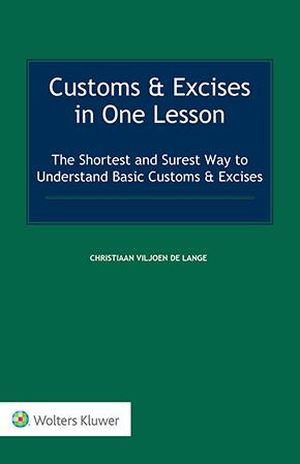
Customs & Excises in One Lesson is a book that challenges the fallacy that the Customs and Excises environment is not susceptible to a coherent summary. It will provide you with a unique and innovative roadmap, supplemented with figures that can be used independently or as a collective, to easily navigate your way through the Customs and Excises cornerstones, concepts, methodologies, and procedures and to provide you with a Customs Optimisation Process, which was derived from the Lesson. Customs and Excises continue to be shrouded in mystery, primarily due to the inconsistency in the use of its terminology, its application, and ignorance. The primary challenge is that its applied terminology is not unique or subject-specific. As a consequence, it tends to be erroneously read, interpreted, and understood for its linguistic meaning rather than for its specific Customs and Excises meaning. Another more critical oversight is that Customs and Excises are inherently Economics, founded on its principles.
As the scope of Customs and Excises is so broad, it is not realistic to consider it as a specialisation without defining the demarcated focus. The focus of this book is solely on the goods – the merchandise.
Customs and Excises can be reduced to a single lesson and itself into a single sentence. ‘The art of Customs and Excises consists of not merely accepting the terminology for its linguistic meaning; it consists of ensuring that the terminology, its context, its meaning, and its effective, efficient, and compliant application are fully understood, and appreciated, in both its reference and application.’
What’s in this book:
For the purpose of simplicity and ease of understanding, the book is presented in two parts:
Key topics include:
How this will help you:
This book caters to Customs and Excises compliance practitioners, trade compliance practitioners, students and young professionals who are in the early stages of understanding the nuances of Customs and Excises. It also informs tax practitioners, in-house tax counsel, academics working in international organisations, business executives, advisory firms, and government officials, for whom it may not be a specialisation but who are interested in gaining an understanding, or even a working knowledge of its intricacies and foundation.